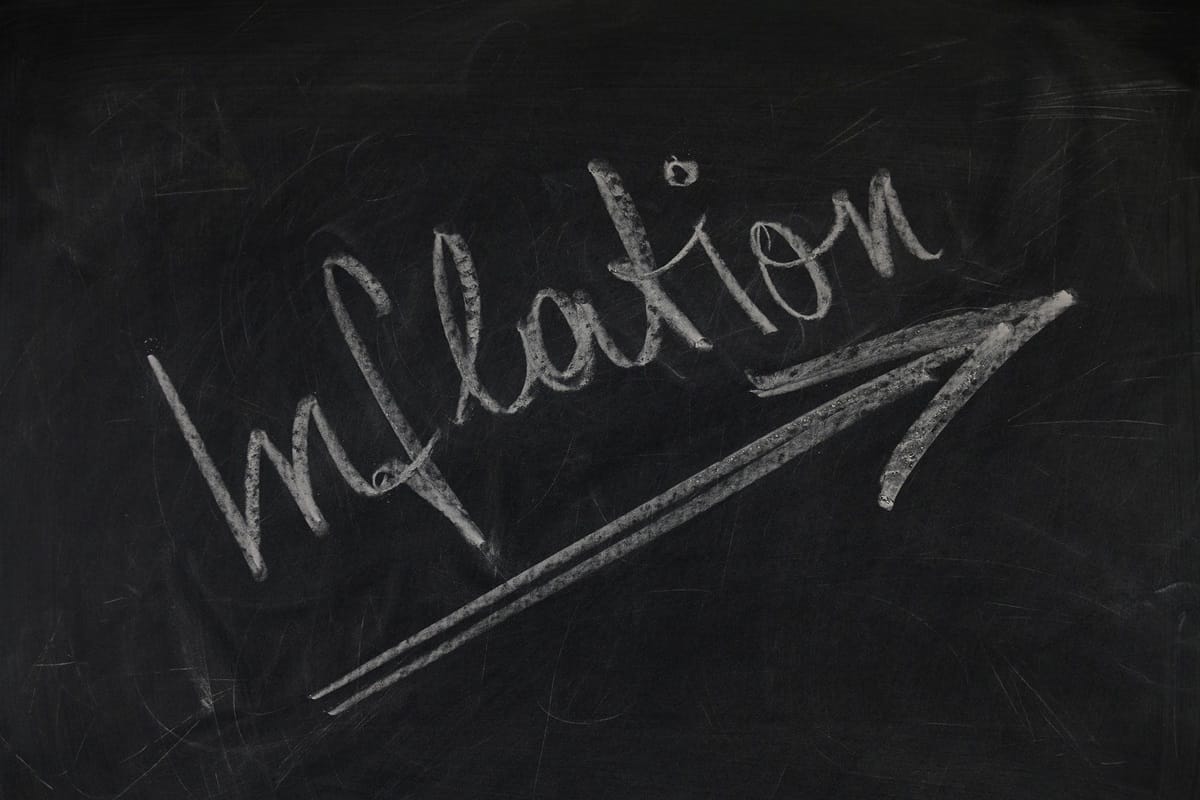On Wednesday, April 3, flash official data were released, according to which in March in 20 countries belonging to the eurozone, inflation fell to 2.4%.

Against the background of the mentioned results of last month, widespread expectations have increased that the European Central Bank (ECB) will begin implementing monetary policy easing measures in the summer, within which a decision will be made to start lowering interest rates. It is worth noting that the opinion about the high probability of appropriate actions by the mentioned financial regulator in 2024 was firmly entrenched in the space of public discourse on economic issues a few months ago. After the inflation data for March, the specified point of view received a new and very significant argument in favor of its realism.
It is worth noting that the result for last month exceeded preliminary expectations. Analysts interviewed by the media predicted that inflation in the eurozone would remain unchanged in March. This point of view provided that the corresponding figure would be 2.6%. However, the economic reality turned out to be more positive compared to the assumptions about its probable condition.
The core inflation rate in the eurozone fell from 3.1% to 2.9% last month. It is worth noting that this indicator does not take into account the prices of alcohol, food, tobacco, and energy.
At the same time, inflation in the services sector in the eurozone has shown stability for the fifth month in a row. The corresponding indicator remains at the level of 4%. This means continued pressure from wage growth. Inflation in the service sector is the main indicator in the context of ECB decision-making.
Also on Wednesday, information was published according to which in February the unemployment rate in the eurozone was 6.5%. This indicator remained unchanged in comparison with the data for January. At the same time, there is a minimal improvement in the situation in the sphere of employment on an annualized basis. In February last year, the unemployment rate in the eurozone was 6.6%. It is worth noting that this indicator is one of the most important in the framework of the ECB’s decision to ease monetary policy.
In Spain and France, the growth in the cost of goods and services in March seemed below forecasts. In Germany, the largest economic system in the eurozone, headline inflation was recorded at a level corresponding to a three-year low.
Currently, there is a confident and steady expectation in the markets that the ECB will begin to reduce the cost of borrowing in June. It is worth noting that the financial regulator demonstrates a kind of readiness to begin easing monetary policy in the summer. At the same time, there is no absolute guarantee that this potential ECB action option will be implemented. Next week, the financial regulator will hold a meeting on monetary policy. It is possible that after this meeting there will be more clarity about the prospects for the start of interest rate cuts in June.
Some traders expect three interest rate lowerings after June 1. In their opinion, as a result of the relevant actions of the ECB, the mentioned indicator will decrease by a quarter of a percentage point. Also, traders with a probability of about 60% estimate the possibility of making a fourth such decision by the financial regulator in 2024.
The head of the central bank of Austria, Robert Holzmann, who belongs to the group of so-called ECB hawks, this week, during a conversation with media representatives, stated that there were no fundamental objections to the start of a lowering in the cost of borrowing two months from now. In this case, a significant change in the mentioned official’s position is recorded. In January, Robert Holzmann admitted the possibility that the ECB would completely abandon interest rate cuts in 2024.
It is worth noting that at the beginning of the current year, expectations were fixed that the lowering in the cost of borrowing in the eurozone would begin in April. Commenting on these assumptions in January, Robert Holzmann said that supporters of the relevant point of view would be disappointed. As of today, there is reason to state that expectations regarding the April interest rate cut have not come true. The ECB meeting next week is not likely to be sensational and the eurozone will not be surprised by the unexpected start of monetary easing.
During a conversation with media representatives in January, Robert Holzmann also said that, in his opinion, there should be no discussion in public discourse about the prospects for lowering interest rates. It is worth clarifying that in this case it was not meant some kind of censorship, but the senselessness of modeling the likelihood of monetary policy easing due to the lack of any prerequisites for such actions by the financial regulator. In this context, Robert Holzmann noted the impact of the armed conflict in the Middle East on the global economy.
Carsten Brzeski, head of the global macroeconomic unit at Dutch financial group ING, says that the current state of affairs clearly signals the first lowering in interest rates in the eurozone in June. In this context, he mentioned the March inflation data. It is worth noting that information on the salary growth and forecasts of ECB employees for gross domestic product (GDP) and the increase in the cost of goods and services will be published soon.
Kamil Kovar, senior economist at Moody’s Analytics, says that the eurozone inflation data for March, released on Wednesday, refuted the assumption that the last mile in the defeating against the rising cost of goods and services will be the hardest. According to the expert, the ECB should implement five interest rate cuts in 2024.
Kamil Kovar noted that the decrease in inflation was recorded, despite the increase in energy prices. The expert also noted that the seasonal increase in the cost of goods against the background of Easter celebrations did not become a barrier to a positive result. Separately, Kamil Kovar underlined that food prices fell in the eurozone in March. According to the economist, inflation in the mentioned region may decline below 2% in the summer.
European policymakers are currently on track to achieve the goal. In this case, it refers to the inflation target of 2%. ECB President Christine Lagarde estimates as a realistic probability of cutting interest rates in June.
Bloomberg Economics experts Ana Andrade and Jamie Rush, commenting on the prospects for the eurozone, say there is a high probability of good news. In their opinion, the favorable base effect will help push the increase in the cost of services gains lower in April. Experts also expect that the slowdown in inflation in the context of prices for core goods will intensify. At the same time, they noted the actual cessation of the beneficial effect of the energy base. Besides, Ana Andrade and Jamie Rush noted that it is highly likely that the pressure on core prices in the eurozone will ease over the next few months.
Disruptions to shipping in the Middle East did not have a significant impact on the dynamic of inflation in Europe. The collapse of the bridge in Baltimore in the United States is also unlikely to transform into a kind of sensitive event for the eurozone in terms of consequences. It is worth noting that Baltimore is one of the most important ports for car manufacturers. At the same time, raising pay in the eurozone may trigger price increases.
Philip Lane, a member of the ECB’s Executive Board, predicts that salary growth will continue to decline. Currently, wages in the eurozone are showing an increase of more than 4%. Against this background, price pressure is forming in the service sector, where labor has a significant impact on final costs.
Currently, there is no understanding of which ECB action strategy is the most optimal after the initial lowering in interest rates. Politicians are already discussing further possible measures. At the same time, the most important factor that will be taken into account when deciding on the ECB’s next action concept will be economic data.
Christine Lagarde said that the financial regulator will respond to the information as it comes in. In March, she said that even after the first cutting of the cost of borrowing, the ECB would not be able to pre-commit to a particular rate path.
As for assessing the prospects for lowering the cost of borrowing, there is also an opinion in Europe at present that making such decisions before implementing similar measures by the Federal Reserve System may be counterproductive. Proponents of this point of view pay attention to the risks of a weakening of the euro and increased imported inflation.
It is also worth noting that the above-mentioned wage growth in the eurozone is largely nominal. Workers are recouping their real purchasing power, which has significantly decreased during a period of rapid inflation, at a slower pace.
Currently, many politicians say that economic growth in the eurozone is very weak. This region has been on the verge of recession for six consecutive quarters.
Nowadays, there is no information yet on which ranges of interest rate cuts in the eurozone are most likely. At the same time, many politicians agree that the deposit rate, which currently stands at 4%, will limit economic growth opportunities. The corresponding state of affairs will be observed at least until the mentioned indicator drops to 3%.
Kyle Chapman, foreign exchange markets analyst at the Ballinger Group, says that there is now increasing evidence that concerns about the potential risk of secondary salary effects are exaggerated. According to the expert, this circumstance is not a significant obstacle to the implementation of the disinflation process.
Kyle Chapman also believes that the steady trend towards achieving the 2% inflation target in the eurozone is indisputable. According to the expert, there will certainly be disagreements during the ECB meeting next week. Kyle Chapman says that the financial regulator should have a serious discussion about what the cycle of interest rate cuts will be and make a preliminary announcement about what actions will be taken in June.
As we have reported earlier, Federal Reserve Governor Lisa Cook Says About Importance of Cautious to Policy Easing.









